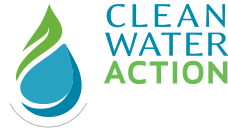Chemycal has been acquired by 3E
Learn MoreChemycal has been acquired by 3E
Learn MoreDiscover how Chemycal PRO helps you boosting your regulatory monitoring:

Oil and gas production puts water across the country at risk. But a new report from Clean Water Action and Clean Water Fund outlines steps the Biden Administration and states can take to increase water quality protection. The “Roadmap for Reform” (the Roadmap) charts a path for improved implementation of the two primary federal water laws - the Safe Drinking Water Act (SDWA) and Clean Water Act -- in order to safeguard sources of drinking water and the nation’s water resources from oil and gas production activities.
“Clean Water Act and Safe Drinking Water Act programs are essential to protecting the water resources most at risk in a climate changing world. The Biden Administration and states with enforcement authority must improve the programs meant to protect water quality from oil and gas activities while we transition away from fossil fuels,” said Andrew Grinberg, the report’s author.
Clean Water’s research and advocacy, and the work of federal agencies and academics, have revealed that oil and gas companies have long relied on loopholes and exemptions that put water at risk, in order to produce fossil fuels. New leadership at EPA presents an opportunity to change course and take proactive steps to rein in polluting oil and gas activities like wastewater (also known as produced water) disposal, enhanced recovery, and hydraulic fracturing.
“For decades, the fossil fuel industry has exploited loopholes in the Clean Water and Safe Drinking Water Acts, allowing these companies to profit at the expense of our water and communities,” Grinberg continued.
The Roadmap builds on more than a decade of research that has included detailed examinations of EPA’s and several states’ programs, as well as direct engagement in regulatory, enforcement and legislative reforms. It outlines improvements that must be made to implementation of the two laws, including closing regulatory loopholes which allow discharge of oil and gas wastewater into rivers and streams, and to modernizing the criteria that states and EPA use to permanently exempt aquifers from federal protection as a source of drinking water.
CONTINUE READING ON www.cleanwateraction.org
2013 © MyChemicalMonitoring. ALL Rights Reserved. About Us | Terms and Conditions